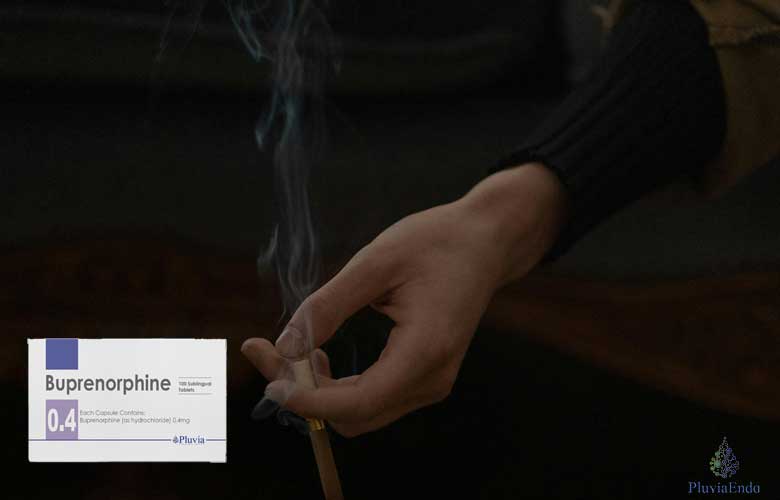Opium addiction is a serious and widespread issue that has devastating effects on both physical and mental health. The use of opium, a highly addictive substance, can lead to a host of health problems and complications. It is important to understand the dangers and effects of opium addiction and the treatment options available. For instance, buprenorphine is there to combat this growing epidemic. This comprehensive guide will delve into the devastating impact of opium addiction on individuals and society as a whole. It will provide valuable insights and information on how to address this pressing issue.
Physical Health Effects of Opium Addiction
Opium addiction not only wreaks havoc on mental well-being but also takes a toll on physical health. Individuals struggling with opium addiction often experience a range of adverse physical effects. Some effects like respiratory issues, gastrointestinal problems, weakened immune systems, and increased risk of infectious diseases such as HIV/AIDS and hepatitis. Prolonged opium use can lead to irreversible damage to vital organs. For example, leading to the liver and kidneys, as well as an increased likelihood of overdosing. Understanding these physical health implications is crucial in highlighting the urgent need for intervention and treatment to mitigate the detrimental impact of opium addiction.
Mental Health Effects of Opium Addiction
In addition to the severe physical consequences, opium addiction also profoundly impacts mental health. Individuals grappling with opium addiction are at a heightened risk of developing mental health disorders such as depression, anxiety, and paranoia. The cycle of addiction can lead to a deterioration in cognitive function, memory loss, and impaired decision-making abilities. Furthermore, the stigma and isolation associated with opium addiction can exacerbate feelings of shame, guilt, and low self-esteem. Recognizing and addressing the mental health implications of opium addiction is essential in providing holistic care and support for individuals on the path to recovery.
Treatment Options for Opium Addiction
Addressing the effects of opium addiction requires a multifaceted approach that encompasses both physical and mental health aspects. Treatment options for opium addiction often include a combination of medication-assisted therapy, counseling, support groups, and behavioral therapy. Medical professionals may prescribe medications to help manage withdrawal symptoms and reduce cravings. Counseling sessions can provide individuals with the necessary tools to cope with triggers, develop healthier coping mechanisms, and address underlying emotional issues. Support groups such as Narcotics Anonymous offer a valuable community of individuals who understand and can provide encouragement and accountability. By seeking comprehensive treatment that addresses both the physical and mental aspects of opium addiction, individuals can embark on a journey toward lasting recovery.
Support Systems for Individuals with Opium Addiction
Support systems play a crucial role in the recovery journey of individuals struggling with opium addiction. Having a strong support network can provide encouragement, accountability, and a sense of community during challenging times. Support groups like Narcotics Anonymous offer a safe space for individuals to share their experiences, struggles, and triumphs with others who truly understand. Additionally, family and friends can offer valuable emotional support and practical assistance throughout the recovery process. Building a robust support system is essential for maintaining motivation and resilience in the face of addiction. In the next section, we will delve deeper into the importance of support systems and how they can significantly impact an individual’s journey toward recovery.
The Role of Healthcare Professionals in Addressing Effects of Opium
Recognizing the expertise of healthcare professionals is paramount in navigating the complexities of opium addiction. Medical professionals play a crucial role in providing evidence-based treatment options, monitoring progress, and addressing any physical or mental health complications that may arise during the recovery process. Seeking assistance from healthcare professionals such as doctors, therapists, and addiction specialists can aid in creating personalized treatment plans tailored to individual needs. Their guidance and support can help individuals manage withdrawal symptoms, address underlying issues contributing to addiction, and enhance overall well-being. In the upcoming section, we will explore the various ways healthcare professionals can contribute to the holistic recovery journey from opium addiction.
Moving Towards Recovery from Opium Addiction
In conclusion, recognizing the critical role of healthcare professionals in addressing opium addiction is essential for a successful recovery journey. Their expertise in providing tailored treatment plans, monitoring progress, and addressing physical and mental health issues is invaluable. By seeking support from doctors, therapists, and addiction specialists, individuals can effectively manage withdrawal symptoms, uncover underlying causes of addiction, and improve their overall well-being. Embracing a holistic approach to recovery under the guidance of healthcare professionals can pave the way for a healthier, substance-free lifestyle. Remember, recovery is possible with the right support system and dedication to making positive changes.







